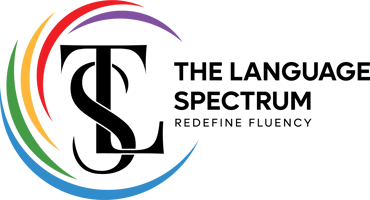The Benefits of Learning German from a Comprehensive Language Perspective


Introduction to the German Language and Its Significance
The German language, known as Deutsch, has a significant role in the global landscape, serving as one of the most widely spoken languages worldwide. With over 90 million native speakers, it ranks as the most spoken first language in the European Union and the third most popular language on the continent. Additionally, German is the official language in six countries, including Germany, Austria, and Switzerland, thereby establishing its presence in various regions not just limited to Europe.
Learning German opens up a multitude of opportunities, particularly in the realms of business, culture, and science. The German economy is the largest in Europe, characterized by its strong industrial base and innovation in technology and engineering. Proficiency in the German language can enhance career prospects, making individuals more competitive in the job market, especially in fields such as engineering, automobile manufacturing, and pharmaceuticals. Furthermore, many leading multinational companies have their headquarters in Germany, emphasizing the value of understanding the language for international business relations.
Culturally, German has a rich heritage, contributing significantly to literature, philosophy, and the arts. Masterpieces from Goethe, Schiller, and Kafka present compelling reasons to engage with the language. By learning German, individuals gain deeper insights into various cultural nuances, fostering appreciation and understanding of different perspectives. Moreover, the German Institute for Foreign Cultural Relations underscores the importance of the German language as a vehicle for cross-cultural dialogue.
In today’s globalized world, proficiency in German not only enriches one’s personal experiences but also connects individuals to a wider network of cultural and professional opportunities. As such, learning German can be a vital step toward achieving success in various aspects of life, particularly for those residing in South Delhi and seeking to pursue education or careers in German-speaking countries.
Cognitive and Personal Development Through Language Learning
Learning a new language, such as German, can significantly enhance cognitive abilities while simultaneously fostering personal development. One of the most notable cognitive benefits is the enhancement of cognitive flexibility. When an individual embarks on the journey to learn German, they immerse themselves in a system of grammar and vocabulary that is distinct from their native language. This not only stimulates mental agility but also encourages the brain to adapt to new structures and concepts, which can improve overall problem-solving skills.
Research has indicated that multilingualism is linked to better memory retention and quicker recall. By regularly engaging with the sounds and sentence structures of the German language, learners find their memory trained, enabling them to retain information more effectively. In fact, studies show that the act of learning languages such as German can even delay the onset of cognitive decline in older adults, highlighting its long-term benefits.
From a personal development perspective, mastering a language can lead to increased confidence. As learners progress in their ability to communicate in German, they often experience a sense of achievement, which serves to boost self-esteem. The process of learning a language like German opens up a gateway to understanding rich cultural nuances and traditions, fostering greater cultural awareness and appreciation of diversity.
Connecting with native speakers or fellow learners can create a sense of community, bridging gaps between individuals from vastly different backgrounds. Testimonials from participants of best German institutes in South Delhi often reflect that interaction with others through language learning significantly enriches their social experiences. By broadening one’s linguistic skills, individuals can forge connections that span across continents and cultures, enhancing both personal and professional relationships.
Cultural Insights and Appreciation
Learning the German language opens up a profound understanding of the rich cultural heritage found in Germany and other German-speaking countries. German literature boasts renowned authors such as Johann Wolfgang von Goethe and Franz Kafka, whose works are integral to the global literary canon. By studying these texts in their original language, learners can engage with the subtleties and nuances that are often lost in translation. As learners delve into German literature, they gradually unlock a wealth of philosophical thought and poetic expression that shapes cultural discourse.
Beyond literature, German is also the language of influential composers such as Ludwig van Beethoven and Johann Sebastian Bach. These musical giants shaped the landscape of classical music, and understanding their works in German allows for a deeper connection with their compositions. Students of the language can appreciate not only the titles of the pieces but also the intent behind them. The lyrics of operas and songs can be grasped more fully, enabling a richer experience of the profound emotional and cultural resonance of German music.
The art scene in Germany, bolstered by artists like Albrecht Dürer and Käthe Kollwitz, presents yet another dimension of cultural engagement. Learning German equips students to understand artistic movements and the context in which these artists worked, creating awareness of the political and social factors that influenced their creations. Moreover, exploring German cinema, with filmmakers such as Werner Herzog and Fritz Lang, unfolds unique narratives and cinematic styles that reflect the complexities of the German experience.
Overall, acquiring proficiency in German enhances the appreciation of these pivotal cultural contributions. The ability to engage with the language directly through literature, music, and art fosters a greater understanding of the essence of German culture. Consequently, this educational journey expands the horizon for learners, inspiring them to explore cultural intricacies that are often overlooked.
Professional Advantages and Economic Opportunities
The ability to communicate in the German language presents significant professional advantages in today's global economy. Germany is one of the world's largest economies and is particularly renowned for its excellence in engineering, automotive, finance, and tourism sectors. As companies continue expanding their operations internationally, the demand for German speakers who can facilitate communication within these industries is constantly rising. This trend is especially pronounced in South Delhi, where numerous educational institutes recognize the value of offering high-quality German language programs.
For professionals seeking to advance their careers, proficiency in German enhances job prospects significantly, especially for individuals aiming to work or collaborate with German firms or international companies that maintain strong ties with Germany. Many businesses prioritize candidates who are fluent in German, as they can easily liaise with German-speaking clients, suppliers, and partners. Being bilingual not only sets candidates apart from their peers but also opens the door to roles that require specialized language skills, thus leading to better job positions and advancement opportunities within their chosen fields.



